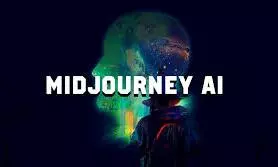
Disney and Universal sue AI firm Midjourney for copyright violation
text_fieldsEntertainment giants Walt Disney and NBCUniversal have filed a lawsuit against AI image generator company Midjourney, accusing it of widespread copyright infringement by replicating some of their most iconic characters.
The federal lawsuit, filed in Los Angeles on Wednesday, alleges that Midjourney has been producing and distributing unauthorised copies of characters from hit franchises such as Star Wars, Frozen, Despicable Me, and others.
The studios claim Midjourney ignored requests to halt the unauthorised use of copyrighted works and failed to implement safeguards to prevent infringement.
Instead, the company reportedly continued to roll out improved versions of its AI service capable of generating even higher-quality replicas.
"Piracy is piracy, and the fact that it's done by an AI company does not make it any less infringing," said Horacio Gutierrez, Disney’s Executive Vice President and Chief Legal Officer. “We are bullish on the promise of AI technology and optimistic about how it can be used responsibly as a tool to further human creativity.”
Kim Harris, Executive Vice President and General Counsel for NBCUniversal, echoed this sentiment, stating the lawsuit aims to protect both creative professionals and the studio’s considerable investment in original content. “We’re suing to protect the hard work of all the artists whose work entertains and inspires us and the significant investment we make in our content,” she said.
Backing the studios’ legal action, Motion Picture Association (MPA) Chairman Charles Rivkin emphasised the importance of safeguarding intellectual property. “Strong copyright protection is the backbone of our industry,” he said. “A balanced approach to AI that both protects intellectual property and embraces responsible, human-centered innovation is critical for maintaining America's global leadership in creative industries.”
The complaint details how Midjourney, based in San Francisco, used the studios’ copyrighted content without permission to train its AI models and produce images. It describes the company as a “bottomless pit of plagiarism” and a “quintessential copyright free-rider” that profited by recreating characters like Yoda, Iron Man, Elsa, Buzz Lightyear, Shrek, Po from Kung Fu Panda, and the dragon Toothless from How to Train Your Dragon, among others.
The lawsuit includes claims from seven corporate entities representing various Disney and Universal Pictures units. The studios are requesting a preliminary injunction to halt Midjourney from further infringing on their content and are also seeking unspecified monetary damages.
According to the filing, Midjourney was founded in 2021 by David Holz and generated $300 million in revenue last year through its subscription-based service. The studios argue that this revenue was made possible by using their copyrighted assets without proper licensing or compensation.
The complaint also references Holz’s 2022 interview with Forbes, where he admitted to building the company’s dataset through “a big scrape of the Internet.” When asked if he obtained consent from creators whose copyrighted work was used, Holz replied, “There isn’t really a way to get a hundred million images and know where they're coming from.”
This legal action follows an ongoing wave of lawsuits against AI companies accused of using copyrighted content—without authorisation—for training purposes.
A similar lawsuit involving Midjourney and other AI firms brought by a group of artists is still under litigation after a judge allowed the case to proceed in 2023.






